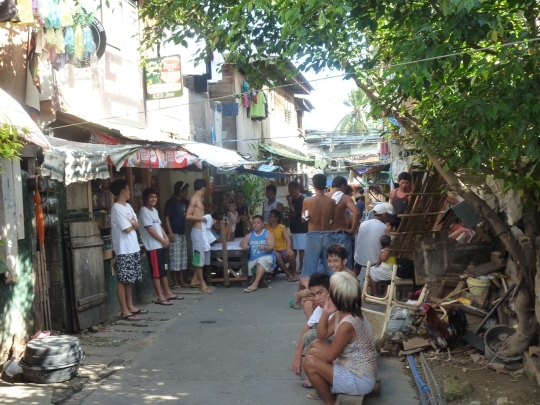“Asian women can be treated however” … sex violence prevalent
Must sign a convention on protection of children in the Asian region

"Even though we ourselves are still yet to recover from the devastating history of our women being dragged to work as Japanese comfort women, our men today are inflicting the same pain on several Southeast Asian countries in the name of ‘tourism.’ Some Koreans go to those countries for 'cheap and convenient' trip but end up trampling on human rights and dignity of the children there."
Lim Youngshin, a fair travel advocate and the representative of Imagine Peace, attended the forum on ways to eradicate child sex tourism, which was held on the 7th at the National Assembly Members’ Office Building. At this forum, Lim revealed the stark reality of sex tourism from the perspectives of ethical travel.
Today, the number of Koreans traveling overseas has reached 13 million; basically, a quarter of the nation goes abroad every year to work, to study, or to travel. Meanwhile, some Korean men’s crooked travel ideas, the so-called ‘child sex tourism,’ is under criticism. It has become an open secret that involves some travel agencies and Internet communities, and now Koreans are one of the ‘star customers’ of southeast Asia’s child sex tourism. However, Korean government is yet to crack down on such practices.
Lim recalled the time she witnessed some Korean men engaging in prostitution at a hotel in southern Philippines. In about an hour, three Korean men came into the lobby, picked up a key each, and headed to separate rooms with young Filipinas. When Lim asked the hotel concierge why he didn’t stop them, he replied, “Because the customer is the king.”
Lim, who has even been rejected to enter some areas in Manila and Cebu just because she was a Korean, met with the local people to hear about their experiences with Korean tourists. They told true stories: a young female guide was punched in the stomach in a park by a Korean male tourist and eventually had to be hospitalized; a drunken Korean man was caught making a scene in a casino with his pants off until the police came to take him away; another Korean man was taken by the police for inappropriately touching a local woman’s buttocks while riding a boat. “While not all Korean male tourists engage in prostitution, many of them still behave as if they can hit, sexually abuse, and basically do whatever they feel like with Asian women,” said Lim.
Lim also told about the prevalent sex trade in Nepal. Whereas the average monthly salary for a teacher in Nepal is 50,000 won and that for a Himalayan guide is 200,000 won, running a child prostitution business can bring 30 million won a year. Some parents voluntarily put their own children up for sex trafficking. Lim added that “86 out of 100 students living in Kalutara, Sri Lanka, said that they had their very first sexual intercourse at age 12 or 13 with a foreign tourist.”
The tragedy doesn’t end there; such appalling practice of Korean men is a bad influence for Korea’s youth as well. Lim expressed concerns that some Korean teenagers, who are living in Philippines to learn English, think and act increasingly like Korean adults who regard local women as something you can “throw away after done playing with them.”
Lim stressed that “all our efforts for peace, human rights, and diplomacy would be in vain if Koreans kept engaging in sex tourism that trample on other people’s rights and dignity and even end the lives of some children.” She added, “The biggest fear of fair travel advocates is another increase in the number of flights departing from Korea because Koreans are the worst tourists not just for prostitution but in every other aspect.”
At the forum, which was held jointly by ECPAT KOREA and the Democratic Party members of the National Assembly, Nam-Yoon Insoon, Seo Youngkyo, and In Jaekeun, Ms. Nam-Yoon, along with Park Sunyeong, Deputy Researcher at the Korean Institute of Criminology, gave a presentation to emphasize the need for a law to prevent human trafficking and to shed light on the current situation of child prostitution in southeast Asia. Rosalie Zerrudo, a Filipino activist, gave a presentation on child prostitution in the Philippines and shared her experience of helping out Amerasians (a person born in Asia to an American father and an Asian mother). Daniel Edelson, a professor of law at Soongsil University presented on why Asia needs a regional convention, citing the example of Europe and the “Council of Europe Convention on the Protection of Children against Sexual Exploitation and Sexual Abuse.”

